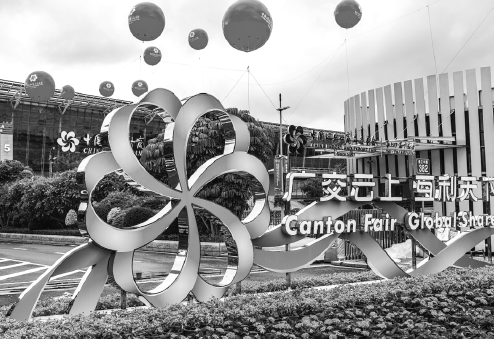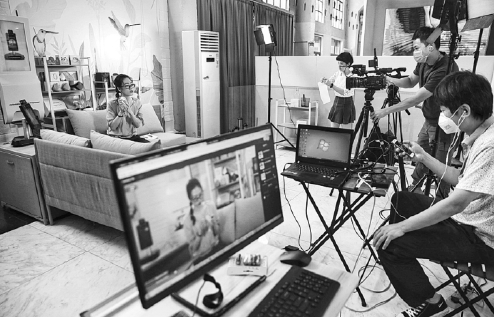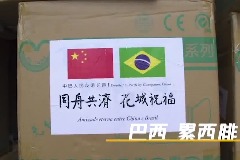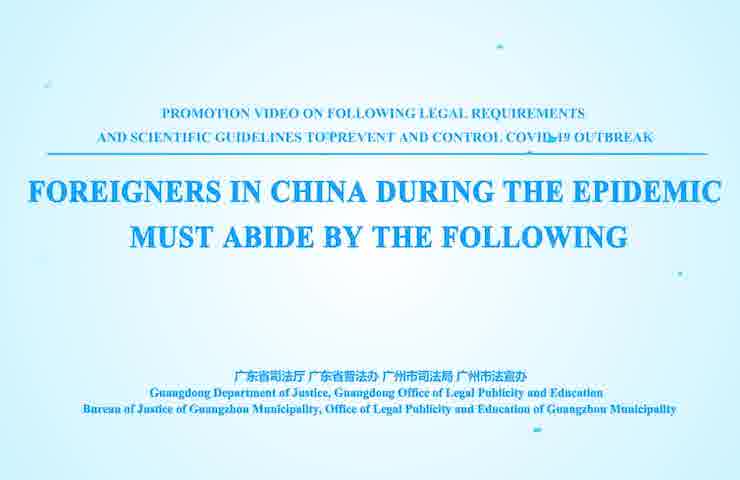Virtual reality as Canton Fair goes online

A view of the China Import and Export Fair Complex in Guangzhou, capital of South China's Guangdong province, on June 14. CHINA DAILY
China's flagship trade event continues to be a major draw for exporters and overseas firms despite COVID-19 pandemic
On the outskirts of Cixi, Zhejiang province, Fang Zhanhe and his employees recently finished decorating a room at his stationery factory in preparation for a livestreaming session, an increasingly popular tool in the country's digital marketing landscape.
The company is participating in the 127th session of the China Import and Export Fair, also known as the Canton Fair.
"Despite having adjusted our business to produce more invoices for domestic companies, universities and local tax offices to mitigate the dropping order impact caused by the COVID-19 pandemic, the online Canton Fair this year could help us revive the export business," Fang said, adding that his factory with 200 staff only managed to ship five containers of notebooks, diaries and calendars to overseas markets so far this year, with exports down compared to previous years.
As many regions around the world are taking measures to contain COVID-19, the government rescheduled the international flagship trade event in late March, and decided to hold it instead as an online event-the first time in its 63-year history-from Monday to June 24 in Guangzhou, Guangdong province. It will consist of online cooperation platforms, transnational e-commerce zones and livestreaming marketing services.
As the COVID-19 pandemic has already cast a shadow over global trade, aviation, services and tourism, businesspeople are still unwilling or unable to travel overseas. China's exporters will have better access to the global market by showcasing their products online this time, said Sang Baichuan, an economics professor at the University of International Business and Economics in Beijing.
"The replacement of the physical exhibition with an online event will not only prevent the spread of the coronavirus, but also help domestic companies gain more firsthand knowledge of foreign market demand via the latest digital and internet technologies," Sang said.
Eager to restore their earnings strength, domestic manufacturers have been gearing up to fulfill overseas orders via the internet. Many of them have already designed new web pages with 3D features to display their latest products and services for overseas buyers during the online fair.
Nie Jing has been undergoing a full schedule of training sessions on how to promote her company's products in front of video cameras since the end of May.
"Livestreaming has been an increasingly popular tool in the digital marketing landscape, as well as a completely new way of selling our products," said Nie, deputy general manager of Zhuhai Primy Kitchen Co Ltd, a maker of stainless steel kitchen and bathroom products based in Guangdong province.
Pushed by the Canton Fair's new format, Nie had to select some sales department staff to be potential anchors. They will help promote the company's products online to global buyers during the fair.
"Potential anchors must be professional, have good understanding of our products and possess proficient foreign language ability," she said. To resolve the issue of time zone differences, the company's head office has issued a revised duty schedule to work the night shift and better serve overseas clients.
Gree Electric Appliances, a Zhuhai-based brand in Guangdong, has also organized a team of anchors who are knowledgeable of product functions, overseas trade procedures and foreign languages, having prepared themselves for online business before the Canton Fair.
"We have developed a team for livestreaming, with the aim of clinching more deals with overseas buyers during the fair," said Wang Shunfang, assistant to the general manager of Gree's overseas sales department.
The company will hold a grand livestreaming event on Thursday to showcase its latest technologies and products to international buyers.
"For us, overseas trading is not only about offline sales, but more importantly online livestreaming, which is expected to help us ink more deals during the fair," Wang said.

Employees of Guangzhou Textiles Holdings Ltd introduce the company's products through livestreaming during the first day of this year's online Canton Fair on June 15. SONG JINYU/FOR CHINA DAILY
In line with China's focus on livestreaming, the fair will provide 24-hour live broadcasting platforms for exhibitors to better interact with buyers around the world, said Li Jinqi, deputy director-general of the Canton Fair's organizing committee. Li stressed that technologies such as the internet, big data, cloud computing and artificial intelligence will be leveraged to fully open up new vistas for exhibitors at the event.
In addition to using well-known digital platforms such as Google and Facebook, as well as a number of social media portals, buyers from home and abroad can easily access exhibits while watching live broadcasts, he said, adding that there are a variety of online communication tools to help buyers and sellers interact in real time, as well as improve the efficiency and effectiveness of online negotiations.
To promote global trade and share mutually beneficial development, Li said activities-including online signings and new product launches to showcase innovative products-will be encouraged during the event. Companies can display their brand image in multiple dimensions through formats such as photos, videos and 3D imaging to buyers around the world.
Over 26,000 companies have already registered as sellers to exhibit their products online. The Guangzhou-based China Foreign Trade Center, the fair's local organizer, has launched several training sessions for domestic companies not familiar with livestreaming and online sales.
Michael Schumann, chairman of the board of directors of Germany's Federal Association for Economic Development and Foreign Trade, said despite the decisive role the exhibition industry plays in both countries, German industry is facing severe challenges from the pandemic and many large-scale exhibitions in the country have been canceled or postponed.
"However, the organizer of the Canton Fair takes a different approach to hold it online for free for exhibitors and buyers. This courageous move is worthy of reference for German exhibitions," Schumann said. "This year's Canton Fair will create more trade opportunities for global exhibitors and buyers."
Organizing the event online is not only a flexible measure to deal with the pandemic, but also an innovative measure to upgrade the traditional fair, as the internet and smartphones already play a big role in people's lives and business activities, said Zheng Jianrong, director-general of Guangdong's provincial commerce department.
Bai Ming, deputy director of the international market research institute under the China Academy of International Trade and Economic Cooperation, expects China's exports to show a stable recovery in the second half of the year on the back of a notable improvement in the industrial, supply and service chains, as well as from major trade events like the ongoing Canton Fair.
To maintain solid economic fundamentals, the government has emphasized the importance of focusing on the "six priorities" of safeguarding employment, people's livelihoods, the development of market entities, food and energy security, the stable operation of industrial and supply chains and the smooth functioning of society.
As the Canton Fair looks to engage exporters, exhibition fees have been waived to cope with the effect of the COVID-19 pandemic and help exporters expand sales and tide over difficulties, said Zhang Li, deputy director-general of the department of foreign trade under the Ministry of Commerce.
Cross-border e-commerce platforms that participate in fair-related activities can also get fee exemptions, Zhang said.
Copyright © Foreign Affairs Office of Guangzhou Municipal Government,
Hong Kong and Macao Affairs Office of Guangzhou Municipal Government All rights reserved.
Presented by China Daily













